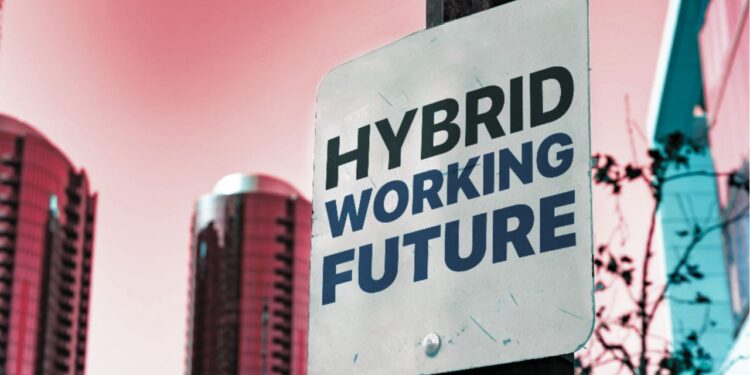Within the ever-growing return to office debate, where powerful firms like Goldman Sachs and Meta are instilling stricter return to office policies, Deloitte’s Connected Consumer Survey 2023 suggests that most working professionals still hold some form of hybrid work.
According to the survey, 56% of employed adults now work from home “at least some of the time.” More specifically, 22% are reported to be working fully remote, while 34% have adopted a hybrid schedule that averages around 3 days in the office and 2.6 days at home.
Interestingly, a little over half of these hybrid workers, or 54%, mentioned that this work model was primarily their employer’s decision, according to an article published by Deloitte.
However, the transition hasn’t been without its challenges. While remote workers have become more adept at building professional relationships and balancing work with household responsibilities, there’s been a notable increase in complaints about technology and connectivity. Many remote employees (both fully remote or hybrid) faced challenges related to devices, systems, and connectivity. For example, 23% of remote workers had difficulty accessing information or files that they need, up 5% over the previous year, and 28% reported experiencing video conferencing problems, up 3% over the previous year.
Despite these technological challenges, Deloitte’s data also reveals that remote workers have seen positive improvements in respect to communication and work culture:
- The percentage of workers experiencing “difficulty building professional relationships,” went down by 10 percentage points, from 31% to 21%, according to Deloitte.
- The percentage of workers “feeling disconnected from my company culture” dropped by 3 percentage points, from 24% to 21%.
- “Ineffective collaboration with colleagues, clients, etc.” went down 5 percentage points over last year, from 23% to 18%.
- And the sentiment of “missing opportunities to advance my career” dropped by 3 percentage points, from 20% to 17%, year over year.
Hybrid workers, in particular, have reported higher job satisfaction and improved relationships with family and colleagues, according to the report. However, they also felt more disconnected from on-site colleagues, faced collaboration issues, and experienced increased distractions and stress. This suggests a possible need for employers to provide additional support for hybrid employees as they navigate the complexities of this work model.
That being said, the overall sentiment leans favorably towards remote and hybrid work models. Deloitte’s survey indicates that the preference for entirely or mostly in-person work has decreased from 44% to 37% within a year. Meanwhile, the desire for a balanced blend of remote and in-person work has risen from 21% to 28%.
As the recent data suggests, for hybrid work to be sustainable, companies must strike the right balance to ensure that operations run smoothly but also to ensure employee well-being. As the workforce continues to evolve, it’s clear that flexibility and adaptability will be key components in shaping the workplaces of tomorrow.



 Dr. Gleb Tsipursky – The Office Whisperer
Dr. Gleb Tsipursky – The Office Whisperer Nirit Cohen – WorkFutures
Nirit Cohen – WorkFutures Angela Howard – Culture Expert
Angela Howard – Culture Expert Drew Jones – Design & Innovation
Drew Jones – Design & Innovation Jonathan Price – CRE & Flex Expert
Jonathan Price – CRE & Flex Expert












